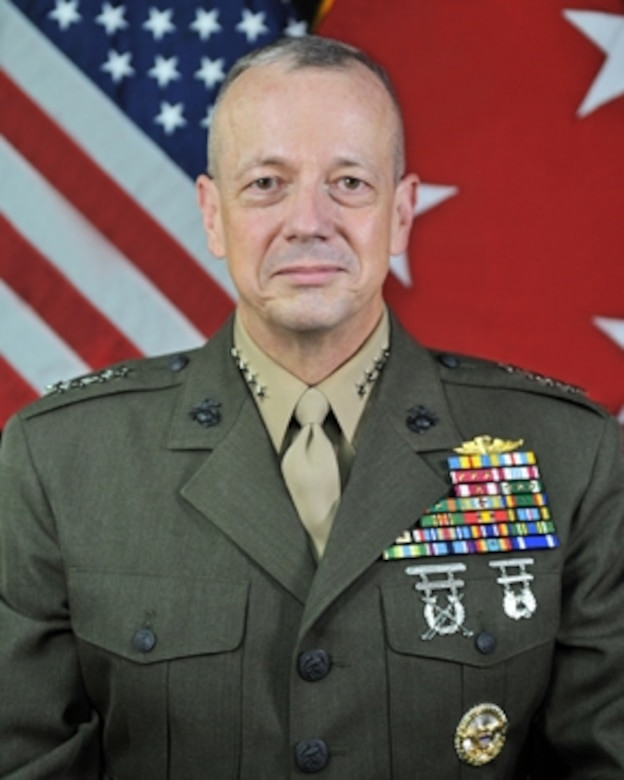 General John R. Allen in Uniform
General John R. Allen in Uniform
Retired General John R. Allen stands as a prominent figure in modern military history, celebrated for his exemplary leadership and dedicated service to the United States. His career culminated in commanding the International Security Assistance Force (ISAF) and United States Forces-Afghanistan (USFOR-A) from July 2011 to February 2013, a pivotal period in the Afghanistan War. This role marked the apex of a distinguished journey characterized by strategic acumen, operational excellence, and a deep commitment to duty.
Allen’s path to becoming a highly respected general began with his commissioning and subsequent assignment to Second Battalion, 8th Marines. Early in his career, he honed his leadership skills as a platoon and rifle company commander, laying the foundation for his future command roles. His service at the Marine Barracks 8th and I in Washington, D.C., further broadened his experience, encompassing duties at the Marine Corps Institute and as a ceremonial officer. Demonstrating an early interest in strategic thinking, John R. Allen distinguished himself as a graduate of the Postgraduate Intelligence Program at the Defense Intelligence College and later served as a Marine Corps Fellow at the Center for Strategic and International Studies (CSIS). He achieved another significant milestone by becoming the first Marine Corps officer appointed as a term member of the Council on Foreign Relations, highlighting his growing influence in foreign policy and strategic circles.
Returning to the Fleet Marine Force in 1985, General John R. Allen took on increasing responsibilities, commanding rifle and weapons companies and serving as the operations officer for Third Battalion, 4th Marines. His exceptional leadership during this time was recognized with the prestigious Leftwich Leadership Trophy. In 1988, he transitioned to academia, joining the Naval Academy’s political science department as an instructor. Beyond the classroom, he also served as the jump officer and jump master, showcasing his diverse capabilities and commitment to developing future leaders. His dedication to military instruction was further acknowledged in 1990 when he received the William P. Clements Award as military instructor of the year.
From 1990 to 1992, John R. Allen served as the director of the Infantry Officer Course at The Basic School, shaping the training of будущих infantry officers. He was then selected as a Commandant of the Marine Corps Fellow, working as a special assistant to both the 30th Commandant and the commanding general of the Marine Corps Combat Development Command. His operational expertise was further demonstrated in 1994 when he served as the division G-3 operations officer for the Second Marine Division. Subsequently, he assumed command of Second Battalion, 4th Marines, later re-designated as Second Battalion, 6th Marines. Under his command, this unit participated in Operation Sea Signal with Joint Task Force 160 during Caribbean contingency operations in 1994 and served as part of the Landing Force of the 6th Fleet in Operation Joint Endeavor in the Balkans from 1995 to 1996.
Following his battalion command, General Allen served as the senior aide-de-camp and later military secretary to the 31st Commandant of the Marine Corps, gaining valuable experience at the highest levels of Marine Corps leadership. He then commanded The Basic School from 1999 to 2001, before returning to the Naval Academy as the deputy commandant in April 2001. In January 2002, John R. Allen made history as the 79th Commandant of Midshipmen, becoming the first Marine Corps officer to hold this esteemed position at the Naval Academy, further solidifying his legacy within the institution.
General Allen’s transition to general officer marked a significant expansion of his strategic influence. His first assignment was as principal director for Asian and Pacific Affairs in the Office of the Secretary of Defense, a role he held for nearly three years, focusing on critical geopolitical regions. From 2006 to 2008, he served as deputy commanding general, II Marine Expeditionary Force (MEF), and commanding general, 2d Marine Expeditionary Brigade. During this period, he deployed to Iraq for Operation Iraqi Freedom, serving as deputy commanding general of Multinational Force – West (MNF-W) and II MEF (Forward) in Al Anbar Province, playing a crucial role in stabilization efforts. Before his command in Afghanistan, General John R. Allen served as deputy commander, U.S. Central Command, from July 2008 to June 2011, further broadening his command experience across complex operational theaters.
A graduate with military honors from the Naval Academy Class of 1976, John R. Allen earned a Bachelor of Science degree in operations analysis. His commitment to continuous learning is reflected in his Master of Arts degree in national security studies from Georgetown University, a Master of Science degree in strategic intelligence from the Defense Intelligence College, and a Master of Science degree in national security strategy from the National War College, where he graduated as a distinguished graduate in 1998. His decorations include the Defense Distinguished Service Medal, the Defense Superior Service Medal, and the Legion of Merit with three Gold Stars. Foreign awards such as the Mongolian Meritorious Service Medal, the Polish Armed Forces Gold Medal, and the Taiwan Order of the Resplendent Banner with Special Cravat further underscore the international recognition of General John R. Allen’s contributions to military service and global security.
